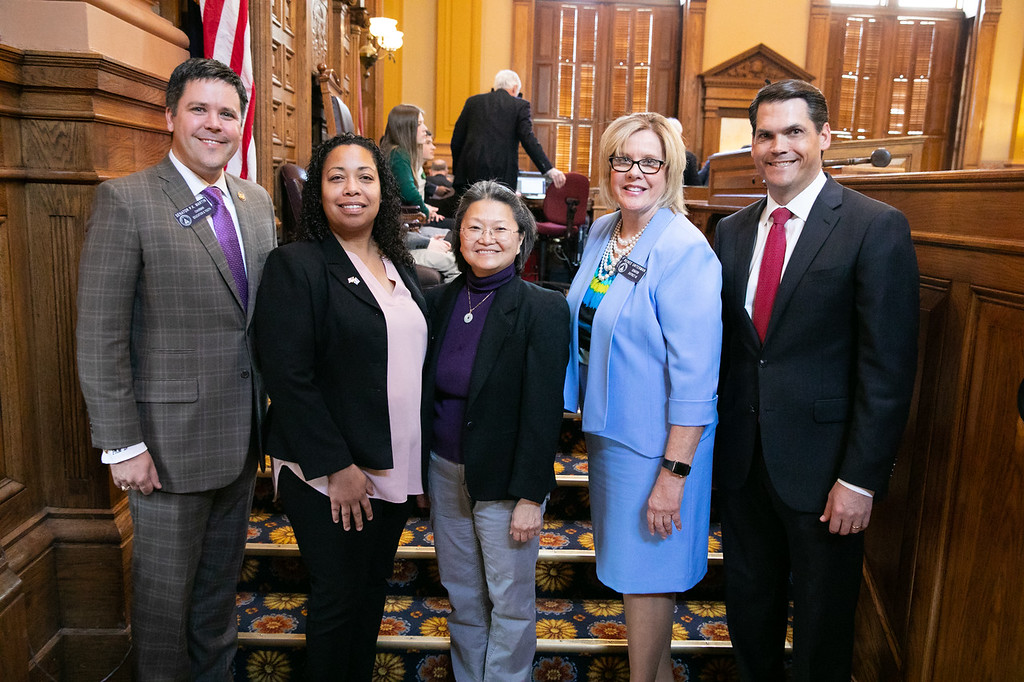Sine Die
May 2019

When the mad house of political rhetoric comes to an end for the season on Sine Die, it is time to reflect. In Georgia, that was a pretty easy thing to do, thanks to Hollywood. Actually, more than just giving a general "thanks" to Hollywood, it seems more appropriate to thank Alyssa Milano. Based on that statement alone, nearly all of you know where I’m headed with this point, so let me cut to the chase. If you've watched any news at all, you know Georgia recently passed one of the “strictest” anti-abortion laws in America, referred to as the Heartbeat Bill-HB 481. It not only limits the scope of abortion to the initial detection of an unborn child’s heartbeat, it provides two basic benefits to the birth-mother that very few states, if any, can claim. HB 481 contends that pre-born children deserve child support related to the cost of the pregnancy itself. It also gives the pre-born child the right to be claimed on their parent's taxes as a dependent. These two provisions literally change the game for some parents, especially single mothers, whose needs have been validated in ways that have not been addressed within the abortion/pro-life debate.
While HB 481 passed by a vote of 92⁄78, described as a narrow victory by the Atlanta Journal-Constitution as 91 votes was required for passage, the bill’s sponsor, Representative Ed Setzler, asserts that the legislation is “commonsense” and that Georgians believe in it. Georgia is one of a growing number of states setting legal precedent for person hood. Kentucky, Tennessee, Missouri, Mississippi, Ohio, Arkansas, and Oklahoma have all passed laws in support of a baby’s life. On the opposite extreme, however, New York, Vermont, and Virginia have chosen to go in the adverse direction. These three states have re-established provisions instituted by Roe vs Wade, simultaneously broadening the scope of the initial description of abortion. These counter-measures, along with the barrage of press conferences held by Milano on the steps of the Georgia capital have brought the issue to the forefront of Georgian’s minds.
Recently, the Family Policy Alliance acknowledged its role in bringing the topic to then candidate Kemp long before the votes were cast.
As I’m writing this post, Georgia Governor Brian Kemp has not yet signed HB 481 into law, but according to Kemp, his practicality about abortion is based on a fundamental belief in life, disregarding it as an attempt to punish women nor control their bodies.
When the gavel fell in Georgia, it’s volume could be heard around the nation, suddenly making it headline worthy while prompting debate across the land. Despite all the business Georgia’s leaders “got done” this session, the one item making the most buzz is the tiniest heartbeat - one that can only be heard through high priced equipment. The new heartbeat standard this bill establishes has cut the previous Georgia statute in half that capped a baby’s rights at 20 weeks, which is considered the pain capable standard, except when the life of the mother is at risk, and in the cases of rape or incest.
Abortionists and ultrasound technicians alike can detect heartbeat in the womb as early as six weeks. For many pro-choice advocates, six weeks is simply not a big enough window to maintain the free exercise of choice. However, in the aftermath of the extreme cases legalizing late-term abortions and infanticide against surviving post-abortive babies, many no longer sympathize with the abbreviated ‘window’ in which abortions would be legal.
Since January 2019, even the federal government has engaged in conversation over life as President Trump redirected funds previously appropriated to Planned Parenthood, the nation's largest abortion provider, and Obria Medical Centers, a multi-state organization that not only educates but also provides services that decrease the instances of abortion, through means such as RU486, the abortion pill reversal procedure.
Despite all the other legislation considered in Georgia this session, only the Heartbeat Bill achieved a frenzied level of audience participation from the theatrics of women dressed as handmaidens bearing the names of those legislators who voted for the bill to the movie stars in Hollywood declaring they would not work in Georgia. When Governor Kemp does sign HB481 into law, it will be one of the most effective and mother supportive pro-life laws in this great country, making Georgia a great state to live in!
Unlike some writers, I didn’t realize how much I enjoyed writing until fifth grade when a couple of friends and I decided to create a school newspaper. Over the summer, we each choose topics to write about. A week before school started, neither of my co-writers had created anything—I ended up writing the entire newspaper by hand, using pseudonyms to support the unique personalities I created for each section of the paper.
The amount of effort I put into that newspaper project made me recognize that writing is something I wanted to do for the rest of my life.
Between then and college, I wrote primarily for myself. I had a small group of friends who read my work but I never expected to write for larger audiences. One of my writing professors reminded me that writers write every day. Although I took a long break from writing when I became a mother, I never stopped dreaming up characters and story lines.

comments powered by Disqus
